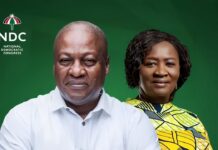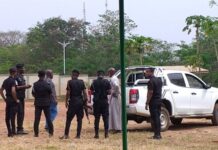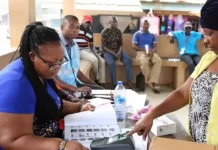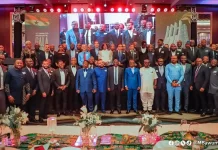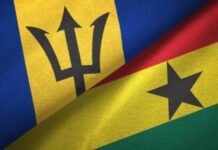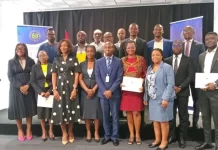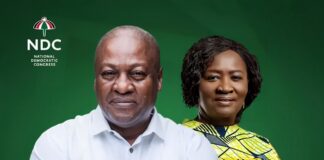
The Economic Community of West African States (ECOWAS) has been in existence for the past 42 years. It has 16 states. However, its functions over the years have been mainly official, leaving out the greater proportion of the population whom the integration process affects. Initiatives are needed to complement governments’ efforts at reaching out and sensitising the public on the integration programme.
West African governments and their people recognised the need for closer collaboration in all fields as far back as May 28, 1975, when the ECOWAS treaty was signed in the Nigerian former capital, Lagos. Recent trends where smaller economies are merging to form large economic blocs and the globalisation of the world economy have made it even more urgent to accelerate the pace of integration in our sub-region. Indeed, small and weak economies stand to be marginalised should they fail to act quickly to integrate their economies for larger markets and benefit from economies of greater scale.
In fact, ECOWAS has thrived to this day amid serious challenges to chart a new direction for relevant institutions to find common solutions to the challenges of ECOWAS. Some of the modest achievements made so far by ECOWAS are reducing the number of road blocks, security check points on our international highways and free movement of goods and services.
However, West Africa still has a long way to go because in spite of these modest achievements, ECOWAS is still very much divided into Francophone and Anglophone zones. There is no doubt that progress made by ECOWAS have been hampered by the numerous parallel and competing activities under the umbrella of inter-governmental organisations among the member states. In the 42 years of its establishment, we should by now be speaking with one voice for purposes of integration. If we are to be taken seriously, we must aim at producing a different story in 10 years’ time.
We must resolve to move ECOWAS forward with full commitment to establishing a viable ECOWAS that will be a major force to reckon with in terms of progress and development of our sub-region. Given this background, there is the need to take a decisive step towards the concretisation of the commitment of our presidents to adopt fast- track approach to the implementation of all agreed programmes of integration within the sub-region so as to benefit the citizenry.
All the three phases of the ECOWAS protocol, that is free movement of persons, rights of residence and establishment, are in force. Very early in the life of our community, it was appreciated that no meaningful co-operation, let alone integration, could take place within the sub-region without peace and security. Hence, the non-aggression pact was incorporated in the ECOWAS treaty at a very early stage.
Unfortunately, this did not prevent internal dissension, conflict and violence, which would later adversely affect the entire sub-region. Ghana has supported these peace initiatives with her armed forces and it will continue to support the sub-regional initiatives at peacekeeping and conflict management. So far, economic integration has been left too much in the hands of governments. For too little has been done to involve commerce and the private sector which constitutes the group that could be said to have the most powerful trans-border interest. To this end, the private sectors have to team up with governments to place ECOWAS on a solid foundation.
To conclude, people within the ECOWAS are calling on their presidents to have good discussions on the crisis in the sub-region for practical peace measures and meaningful integration and nothing else.
To date, Ghana intends to make good her relations with all her neighbours to ensure that the peace that Ghanaians are enjoying in the country will not be disturbed.





